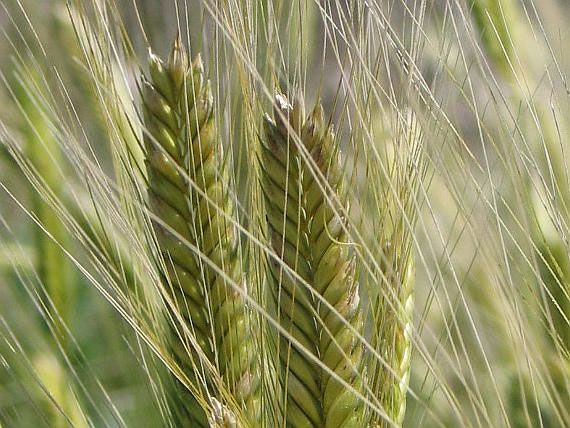Successful breeding of wheat tolerates salinity
New Australian scientists successfully tested hard-boiled wheat to withstand salinity, increasing grain yield to 25% in saline soils.
>>>Detecting the Eibi1 mutant gene in wild barley
Using conventional breeding techniques, scientists at the University of Adelaide and the Commonwealth of Science and the Industrial Research Organization (CSIRO) have released a new wheat variety containing genes that remove sodium salt from rice. Triticum monococcum noodles (close relatives with modern wheat) allow water to move from roots to leaves to grow plants.

Researchers have developed a new wheat variety that contains the gene that removes sodium
Wheat is one of the most widely grown grains in the world, but in saline soils, it is vulnerable to salt accumulation in leaves, which can hinder growth and reduce yields, threatening security. Food.
The study uncovered crops and wheat varieties that can grow on saline soils, to develop grain crops. Moreover, this conventional breeding technique will give seeds much cheaper price for genetically modified seeds. Scientists are planning to sell new wheat seeds within the next 5 years.
It is known that saline soils affect more than 20% of the world's agricultural land, making it difficult for agricultural irrigation systems, especially in high saline areas. In the United States, one of the world's largest wheat exporters, each year the damage from salinity is up to $ 12 billion.
However, there are also concerns that the dissemination of this wheat variety will reduce interest in saline soil improvement by farmers.
- The first successful decoding of the wheat genome structure
- Preliminary genes help create salt-tolerant wheat
- US science successfully decodes the genome of wheat
- Successful breeding of Goose fish
- Maize culture has high salinity tolerance
- Sweet wheat was born
- Will salty wheat solve the food crisis?
- Create drought-resistant, high-yield wheat varieties
- Is sea water more salty?
- Successful breeding of red pheasant in Ha Tinh
- Wheat is aging prematurely because of climate change
- Wheat pests spread faster than we thought
 Why do potatoes have eyes?
Why do potatoes have eyes? 'Tragedy' the world's largest carnivorous life: Death becomes ... public toilet
'Tragedy' the world's largest carnivorous life: Death becomes ... public toilet Tomatoes were once considered 'poisonous' for 200 years
Tomatoes were once considered 'poisonous' for 200 years Detecting microscopic parasites on human face
Detecting microscopic parasites on human face